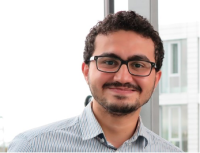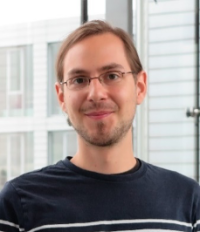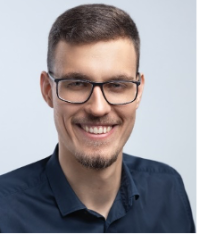Three outstanding AudioLabs students honored with awards
14.01.2022
The start of a new year is also a good time to look back at the achievements of the past year. We were especially happy, that three exceptional students from the International Audio Laboratories Erlangen have received awards for outstanding achievements in their fields: Congratulations to Mohamed Elminshawi, Adrian Herzog, Jan Wilczek We are excited what will come in 2022.
VDE Bayern Award 2021
VDE Bayern (Verband der Elektrotechnik Elektronik Informationstechnik e.V.) is a dialogue and contact partner for Bavarian state politics and offers its partners from companies, universities and politics the expertise of the VDE network of experts in electrical engineering and information technology. In the “Science” category, the VDE Bayern Award honors talented students from Bavarian universities for their excellent final theses in the technical and scientific field. Mohamed Elminshawi has received this award in November 2021.

In his Master Thesis he focused on target speaker extraction, which is the task of isolating the speech signal of a desired speaker from a mixture of audio sources, such as other interfering speakers or background noise, with the help of a pre-recorded speech signal from the same person. He showed that this approach can be extended to extract non-speech target sources as well, e.g., piano or guitar, by providing a reference signal from the non-speech source class from which a source embedding is obtained. He also proposed a new technique to exploit the dynamics of the reference signal by modifying the architecture of the neural network. Equipped with the proposed technique, his method significantly outperformed state-of-the-art baselines when applied in an acoustic echo cancellation scenario.
EUSIPCO 2021 Best Student Paper Award
EUSIPCO is the flagship conference of the European Association for Signal Processing (EURASIP) and offers a comprehensive technical program covering the latest research developments in signal processing including computer vision, speech processing, artificial intelligence and machine learning to name a few.

Adrian Herzog received an award for his student paper, which was created in the context of his PhD research. He is pursuing his PhD in the field of Ambisonics, a full-sphere surround sound format, acoustic parameter estimation and signal enhancement. The awarded paper is about reducing undesired sounds, such as noise or interference, in a multichannel recording while preserving the spatial characteristics of the acoustic scene. The latter is important to retain plausibility of the acoustic scene. In case the desired signal is speech, for example, a lack of spatial separation between the speech component and the residual noise remaining after noise reduction, could otherwise impair intelligibility. In the awarded paper, a signal-dependent partial noise reduction approach was proposed, which is able to mitigate spatial distortions of the noise further without significantly deteriorating other performance measures and can be applied to any multichannel signal format.
DAAD Award for Outstanding Achievement by Foreign Students 2021
For more than ten years the DAAD (Deutscher Akademischer Austauschdienst) has been awarding outstanding achievements of international students studying in Germany. It is given yearly to a single graduating Master’s student from the entire university. Considered candidates should have not only great study results but also should be engaged in intercultural or social activities.

Jan Wilczek from Katowice, Poland, has received the DAAD award. In October 2021, he graduated from Advanced Signal Processing and Communications Engineering (ASC) at FAU Nürnberg. He showed deep international engagement in his blog and Youtube channel WolfSound (https://www.thewolfsound.com/ and https://www.youtube.com/c/WolfSoundAudio respectively). On these channels he posts articles and videos on the topics of audio programming. During his studies he was further organizing a workshop on music composition, production, and publication for the fellow scholarship holders of the Max Weber-Programm Bayern scholarship. Currently he writes his master thesis about Virtual Analog modelling of analog audio effects using a combination of neural networks and differential equations.

